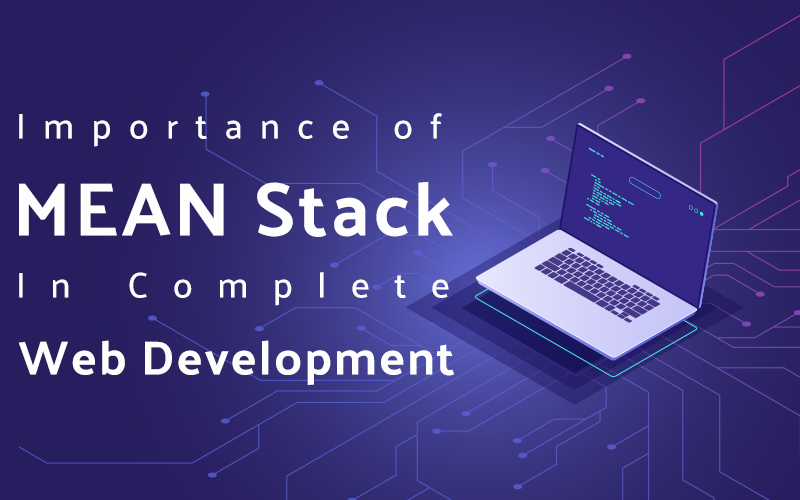Choosing the right technology stack for development is crucial for the time to market, stability, and scalability of your product or service. Many developers joined the parade mainly because MEAN is an all JavaScript stack. Apart from the more natural learning and transition curves, MEAN Stack offers many advantages making it one of the most preferred and used ones in recent times.
Since the last couple of years, the developers have been finding it challenging to find a complete solution for web development. MEAN stack emerged as one of the most popular frameworks for web development services in Japan due to the combination of many technologies stacked together and serving different purposes.
Essential Points that Make MEAN Stack a Great Choice
The process of web development involves the usage of various technologies like web servers, libraries, front-end frameworks, and database systems. MEAN Stack offers a perfect combination of such tools for the developers to facilitate a faster and more effective web development process. Here are some significant reasons why it’s the right choice:
Common JavaScript Language
The primary reason for preferring the MEAN stack is because of the use of a common language for both client-side and server-side. Since all these technologies are written in JavaScript, your web development process becomes neat. Node.js is a platform that brought JavaScript implementation on the server-side. With Angular.js and JavaScript on the front-end, it becomes easier to reuse code from back-end to front-end.
MEAN stack can also be used for the API-first development approach and maintaining a highly decoupled architecture. With this approach, it will become easy to interchange front-end frameworks with very limited to no impact on the back-end. MEAN stack has become one of the industry-standard stacks for small startups, due to its rapid and successful development.
JSON and MVC Architecture
The MVC model allows multiple programmers to work on the code simultaneously. It organizes applications and thereby supports a MEAN stack developer in rapid and parallel development. Hence the development time can be reduced to three times. MEAN stack also uses JSON, a JavaScript open standard file format that uses human-readable text to transmit data objects. Hence, it eliminates the need to use libraries for converting data during client-side and server-side interaction.
Moreover, JSON also allows working with external APIs (application programming interfaces) smoothly. MEAN uses binary-JSON (BSON) for data everywhere, making it easier for reformatting data as it passes through different layers. MongoDB can store documents in a JSON format, Express.JS can write queries in JSON and pass to Node.JS back-end which understands JavaScript and seamlessly moves data to the AngularJS front-end.
Different Database Tools
MEAN Stack is a blend of four technologies named MongoDB, Express.JS, Angular.js, and Node.js. Mongo manages web generated data with loads of database tables for back-end, suitable for use in a variety of web applications. Express.js works hand-in-hand with Node.js to communicate with the server. It establishes routes that determine the happenings at each URL, and create a networked application using JavaScript with RESTful routing.
Express.js can work with a wide variety of template engines, including EJS and Jade. Along with it, Angular.js is a front-end JavaScript development framework for developing single-page applications. It allows a clean way of adding interactive functions and AJAX-driven costly components on the client-side. With Node.js as a server-side solution and JavaScript on both client and server-side, it is easier to program applications.
Intuitive Framework
The MEAN stack provides everything necessary to create a competitive web application, yet it is less complicated compared to the LAMP stack. Most importantly, the MEAN stack doesn’t require developers to rely on strict schemas and format data very specifically. MongoDB allows the developer to easily add new information to some of the items in a JSON file.
It is inherently flexible when compared to other databases. The tools present in it make it easy to make changes in the data model on the go and gives a lot of options to make the queries faster for specific result sets. For databases that need to handle vast volumes of data, MongoDB becomes an obvious choice if the system is going to be designed and built from scratch.
Isomorphic Nature
MEAN Stack allows isomorphic coding that lets the developers use JavaScript for front-end and back-end. This is beneficial in a startup as they can effectively use the coding resource. All the MEAN stack components are open-source and regularly updated, which allows the developers to customize the code according to their needs.
Data transfer between front-end and back-end happens through a JavaScript object, which makes the process easier for developers. Asynchronous programming makes operations such as I/O to network connections, file systems, and databases execute very fast. This nature is non-blocking IO, which follows a modular architecture and extends additional capabilities in the future.
Final Thoughts
MEAN Stack offers a modern approach to web development. It also makes use of the power of modern SPAs (single-page applications), which does not require entirely refreshing a web page for every server request, as most traditional web applications do. It is important to note that if technologies work together in the form of an architecture of a full-stack solution, it can execute developments dynamically faster. WeCode is a leading MEAN Stack web development company that uses MEAN stack as an effective approach to web development. Our developers provide expert guidance and consulting so that your plan always aligns with our strategies. We strive to understand your challenges and then develop customized websites that suit your needs.


